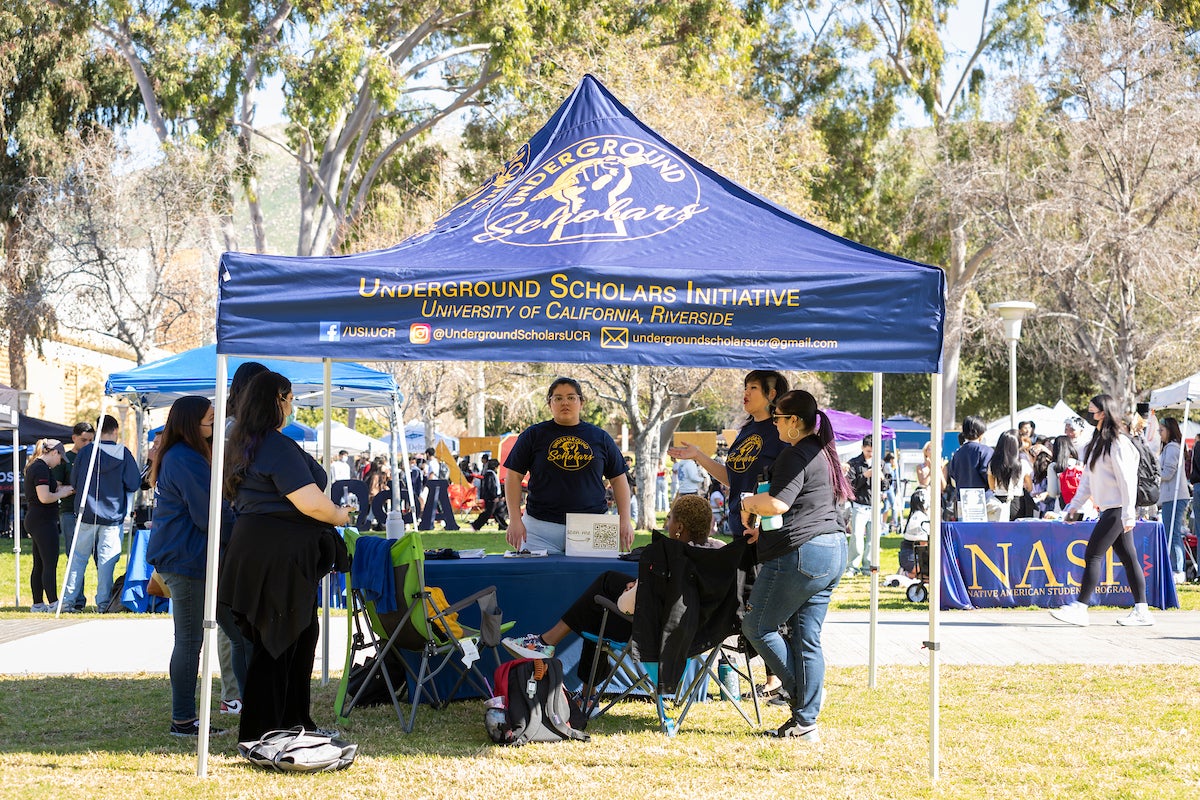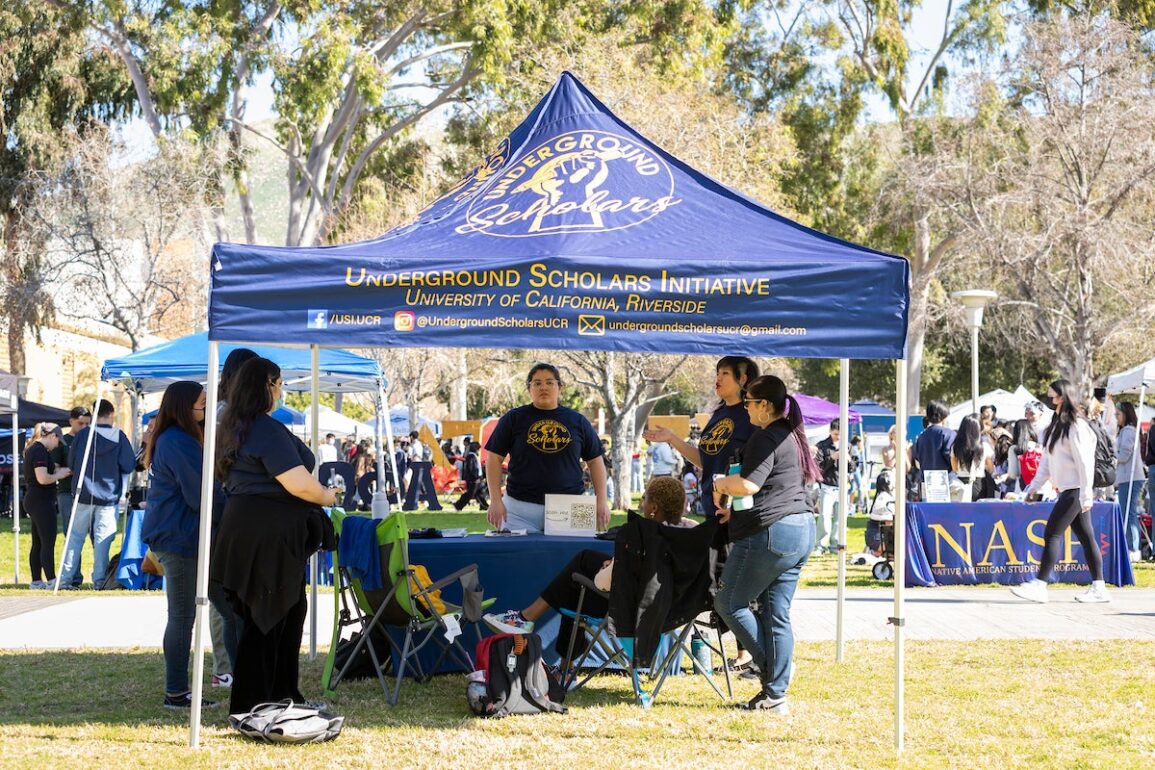
The Underground Scholars Program at the University of California, Riverside has been awarded a $300,000 grant from the California Wellness Foundation, or Cal Wellness, to help young people involved with the juvenile justice system enroll and succeed in higher education.
“Cal Wellness is delighted to support the UC Riverside Underground Scholars program to sustain and strengthen the well-being and postsecondary educational progress of young people involved with the juvenile justice systems in Riverside and San Bernardino counties,” said Cal Wellness program director Jeffrey Kim. “We have been working for years to fortify the policy and direct services ecosystem across California to better support the aspirations of these young people for economically secure and personally fulfilling futures.”
Underground Scholars is a prison-to-university pipeline program that supports formerly incarcerated or system-impacted students — those with arrests or convictions but no incarceration or who have been directly impacted by a family member’s incarceration. UCR houses this program under its Office of Diversity, Equity, and Inclusion.
While Underground Scholars works to challenge stigmas associated with incarceration and cultivate a sense of belonging and community, its members still face many hurdles on their higher education journey. Like many college students in the Inland region, Underground Scholars struggle with affordable housing, food insecurity, reliable transportation, and increasing tuition. But they are also marred by an extra dose of discrimination often placed on people who have carceral connections.
“This grant will allow us to expand our reach. It will enable us to assist youth who are underserved and overlooked when it comes to the carceral system,” said Ismael Davila, director of UCR’s Underground Scholars program. “In addition, it will help us connect more with our community and get people thinking about higher education sooner.”
According to a 2016 report from the United States Sentencing Commission, offenders with less than a high school diploma had the highest recidivism rates at 60.4%, followed by high school graduates at 50.7%, and those with some college at 39.3%. College graduates had the lowest rates at 19.1%.
“As more prisons improve their educational programming and work toward de-incarceration in the state of California, UCR can assist in providing strong infrastructure and campus support for those pursuing academic pathways that will improve the lives and futures of their entire families’ socioeconomic mobility,” said Mariam Lam, UCR’s vice chancellor for diversity, equity, and inclusion.
The grant term is from Oct. 1, 2023 to September 30, 2026 and will be used to:
- Support young people involved with the juvenile justice system to enroll and succeed in higher education.
- Provide case-managed supportive services for young people involved with the juvenile justice system.
- Collaborate with community colleges, county youth probation departments, and other stakeholders to support young people involved with the juvenile justice system.
Underground Scholars was first established at UC Berkeley in 2013 and now operates at each of the 10 UC campuses. UCR’s is the newest chapter — set up in 2018 — and currently supports approximately 120 students.
“This would have not been possible without the assistance of [our student leaders] Bennie, Genevieve, and Luis. These Underground Scholars students played a vital part by providing insight and expertise on how we could best serve the youth in the halls because they were also incarcerated as youth,” said Davila.
Read stories shared by some of UCR’s Underground Scholars in this spring 2023 UCR Magazine feature, “From the Ground Up.”
Related UCR X Underground Scholars articles:
This post was originally published on this site be sure to check out more of their content.









